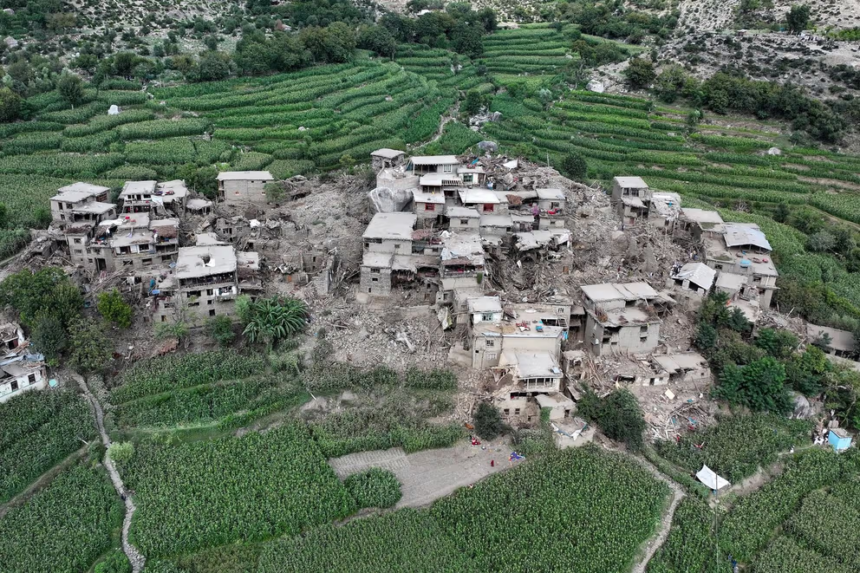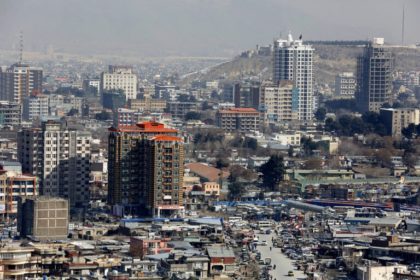RASC News Agency: In the wake of the devastating earthquake that struck Afghanistan’s eastern province of Kunar, the Taliban’s Ministry for Guidance, Pilgrimage and Religious Affairs has sought to deflect responsibility by framing the disaster as a “great divine test.” In an official communique, the ministry instructed mosque preachers to use Friday sermons to call on worshippers to repent, endure with patience, and seek forgiveness, while portraying the earthquake as a reminder of “the punishments visited upon past nations.” Citizens were further urged to give alms and rely on individual acts of piety rather than expect meaningful state intervention.
The announcement has triggered fierce criticism across social media platforms. Thousands of Afghanistani users denounced the Taliban for hiding behind theological rhetoric while failing to provide practical relief. “Instead of tents, food, and medicine, they hand us empty sermons about patience,” one Kabul resident wrote in response. Human rights activists echoed this sentiment, accusing the Taliban of reducing governance to prayers and rituals while leaving survivors to fend for themselves amid rubble and hunger.
Even within religious circles, voices of dissent have emerged. Several respected Islamic scholars acknowledged that calamities may be viewed through a spiritual lens, yet underscored that rulers carry an unambiguous religious and moral duty toward the afflicted. “Governments are obliged to act decisively in times of natural disaster. Ignoring the suffering of victims under the pretext of divine will has no legitimacy in Islam,” one cleric told RASC News. This rare criticism highlights the growing unease among the country’s religious establishment at the Taliban’s attempt to exploit faith as a shield for incompetence.
Analysts argue that the Taliban’s rhetoric is part of a wider strategy: evading the responsibilities of governance by cloaking administrative paralysis in religious vocabulary. The narrative of “divine testing,” they note, conveniently absolves the Taliban of any obligation to mobilize resources, build infrastructure, or create emergency preparedness plans. Instead, it allows the regime to redirect blame toward fate and leave Afghanistan’s most vulnerable populations to suffer in silence.
The human toll of such neglect is staggering. The Kunar earthquake killed and injured scores of people, left thousands homeless, and inflicted widespread destruction on already impoverished communities. Families are now forced to live under the open sky, exposed to the elements, with little access to clean water, medicine, or food. While international organizations scramble to provide relief, the Taliban remains conspicuously absent offering sermons in mosques where tents and medicine are desperately needed.
This is not the first time the Taliban has attempted to mask governance failures through theological justifications. Earlier, the group’s reclusive leader, Hibatullah Akhundzada, dismissed Afghanistan’s spiraling poverty as another “divine trial,” bluntly declaring that the Taliban was not responsible for the provision of livelihoods. According to him, the movement’s sole duty is to impose its rigid interpretation of Sharia law. This narrative effectively strips the Afghanistani people of their right to demand food, shelter, and security from their rulers, reducing governance to little more than religious enforcement.
For many citizens, this rhetoric has become intolerable. “We need hospitals, not sermons. We need shelter, not lectures on patience,” said Ahmad Jan (pseudonym), a teacher from Kunar who lost relatives in the quake. “If they call themselves rulers, then let them govern. Otherwise, they should admit they are incapable.” Such testimonies echo across Afghanistan, where communities battered by natural disasters and poverty increasingly view the Taliban not as protectors but as bystanders cloaked in piety.
The earthquake has once again laid bare the Taliban’s fundamental incapacity: a regime that claims divine legitimacy yet abandons its people in their darkest hour. By reducing national tragedies to metaphysical “tests,” the Taliban has transformed governance into a theater of sermons while Afghanistan’s population pays the price in blood, hunger, and despair.






